In today’s age of fast-paced events and gatherings, the key to success lies in devising creative and experiential events and knowing how to promote them to garner maximum attendance. A well-executed event promotion strategy draws the right audience and ignites a buzz that resonates far beyond the venue’s confines. Strategic event promotion can enhance the event organizer’s brand image, credibility, and reputation. In short, you must invest time and resources into event promotion to ensure your upcoming event succeeds.
In this comprehensive guide, we delve into the art of event promotion, exploring proven techniques and innovative approaches that will empower organizers to reach new heights of audience engagement, attendance, and overall success.
What is Event Promotion?
The term “event promotion” describes various activities of advertisements and marketing campaigns to publicize, stir interest in, and draw people to a particular event.
The precise strategy will vary depending on the target demographic, event type, budget limit, and expected outcomes. An effective event promotion strategy attempts to raise awareness, generate interest, and increase attendance and involvement, assuring the event’s success.
Why is Event Promotion Necessary?
Event Promotion helps in creating awareness about the event among the wider audience. To attract a larger audience and increase event attendance, encourage potential attendees to register or purchase event tickets.
Event promotion creates a buzz around the event by highlighting its unique features, guest speakers, performances, or offerings. It builds anticipation and excitement among potential attendees. Effective promotion of an event can attract sponsors and partners. A well-executed promotional campaign demonstrates that the organizers are committed, organized, and capable of delivering a high-quality event.
Event Promotion Vs. Event Marketing
As a concept, event marketing is broader than event promotion. It aims to inform and create a meaningful connection between the audience and the event. It focuses on building anticipation and engaging the audience and often incorporates branding and storytelling.
On the other hand, event promotion informs the target audience about the event’s happening and its details. It focuses on spreading the word and driving attendance.
In short, event promotion is a subset of event marketing. It focuses on the tactical efforts to get people to attend an event. On the contrary, event marketing takes a more strategic and holistic approach. It aims to engage the audience deeper and build a lasting connection between the audience and the event or brand.
Different Event Promotion Platforms
Events can be promoted either in a traditional manner or through online mediums.
1. Traditional or offline paid promotion includes print media (newspapers, magazines), radio, television, outdoor billboards, pamphlet distribution, and direct mail campaigns.
2. On the other hand, online or digital promotion includes an event website; social media platforms such as Facebook, Twitter, Instagram, LinkedIn, and YouTube videos; newsletter; paid advertising on Google ads, Facebook ads, Instagram ads, LinkedIn ads, and display networks; Event listing website- Eventible, Eventbrite, Meetup, and Eventful. We have an article, 10 Ways To Promote An Event On Linkedin, which will give you a detailed idea about how to promote an event on the social networking site.
It would be best to have press releases, guest articles, interviews, or event listings in relevant publications to create valuable exposure and reach a broader audience.
How to Promote An Event From Beginning to End?
For any event to succeed, merely organizing it isn’t enough. It must be promoted on multiple platforms to garner sufficient buzz and attention. Event organizers and event marketers must remember a few mandatory steps before devising their event promotion strategy. Let’s look at the step-by-step journey of promoting an event below.
1. Define Your Goals and Objectives
As per an article published by the American Marketing Association, the first and foremost step in event promotion is understanding your event goals before promoting or marketing your events. It is imperative to gauge your event’s return on investment (ROI) at the end of the journey and to understand if your event was successful. The goals and objectives may vary depending on the specific event and its legitimate purpose.
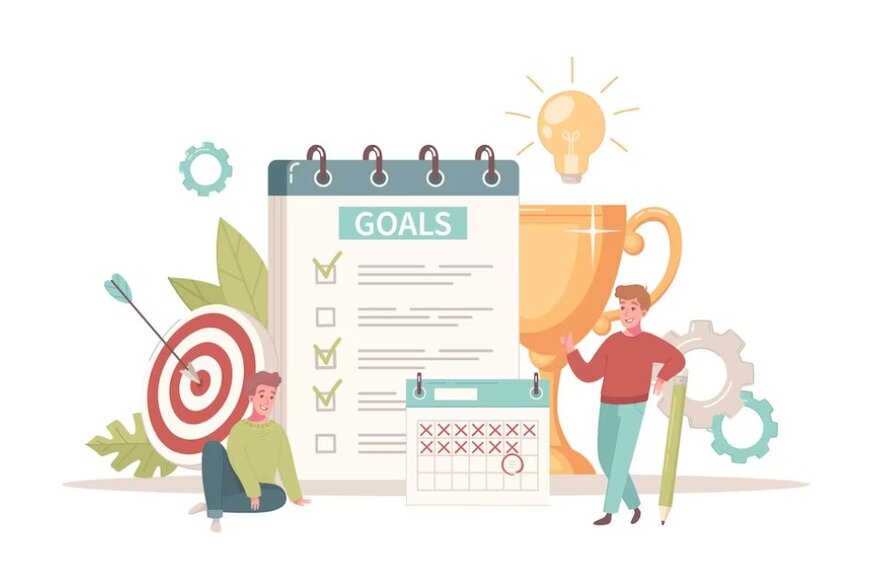
To gain more insights about an event’s creative marketing strategies, delve deeper into our article, A Comprehensive Guide of Event Marketing Strategies That Guarantee Success.
2. Understand Your Target Viewers
Knowing your audience is a crucial aspect of event promotion. As per a research paper published in the International Journal of Event and Festival Management, audiences interact with event experiences uniquely. However, it is only by understanding and analyzing real-time behavior and audience preferences that organizers can genuinely assess the success of an event and find ways of improving it further in the following years.
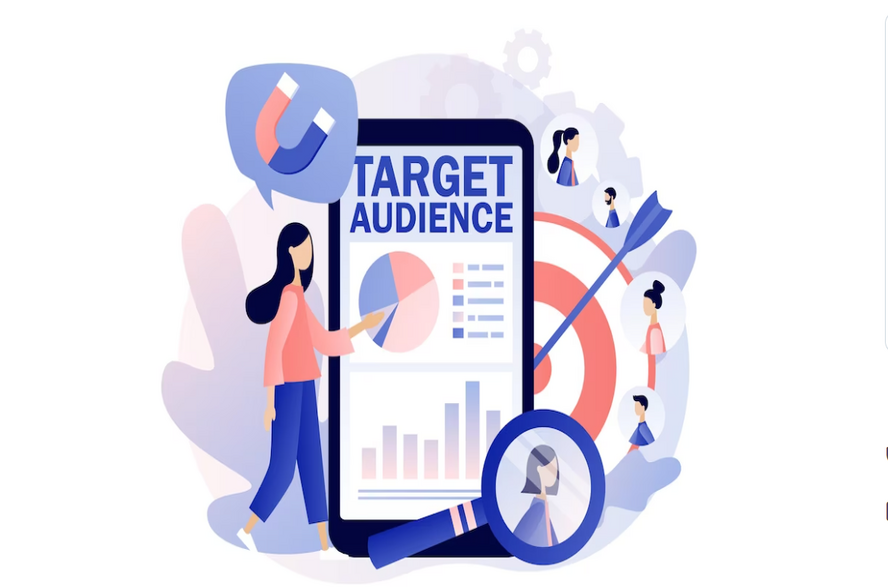
The primary task is understanding the target audience’s taste before charting your event promotion strategies. While doing so, take into consideration the following points.
- Gauge the age, gender, location, profession, interests, and industry to create a focused promotional strategy.
- Perform target market research to gather information about your target audience’s interest, such as surveys, interviews, and social media pages or social media accounts.
- Monitor social media walls, online communities, and forums to observe conversations about your event’s topic or industry. It will help you identify trends, issues of interest, and relevant current affairs your target audience discusses.
- Use analytics tools like social media insights or Google Analytics to gather statistics about your followers, email subscribers, and website visitors. Analyze metrics like demographics, interests, and engagement levels to understand who interacts with your promotional efforts.
- If you have previously hosted similar events, analyze data such as attendee profiles, feedback, and engagement metrics. This information can provide valuable insights into the preferences and behaviors of your current audience.
- You can also use Eventible to gauge audience/attendee experience. Eventible is a review platform where attendees can leave detailed feedback (written or audio). It acts as social proof to event organizers and marketers, who can use the audio and written feedback to improve their events the following year. They can use the badges, audio, and written feedback and share it on their social media platforms to promote their events. We track the world’s largest pool of event attendees and professionals looking to attend or promote their next event. It makes us uniquely qualified to help your events, webinars & content assets find their intended audiences more consistently than any other channel.
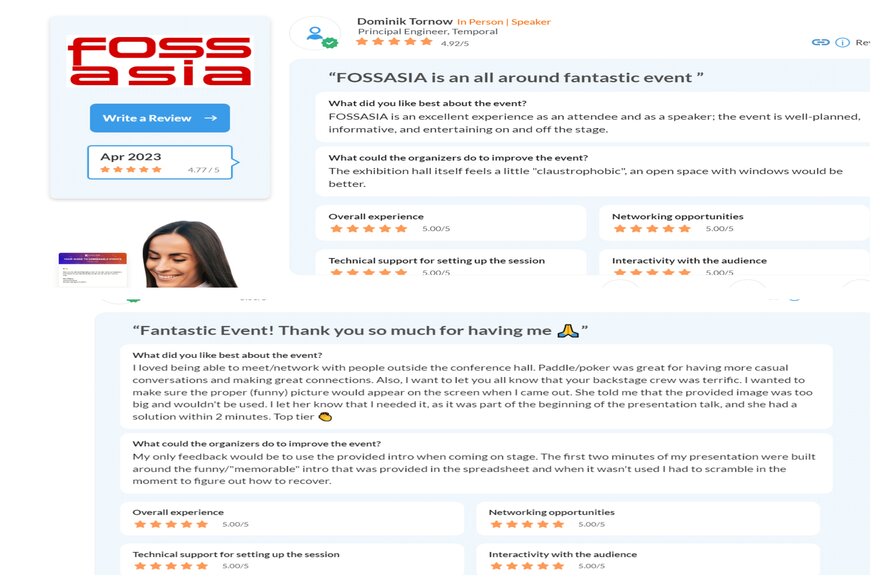
- Engage directly with your target audience by encouraging feedback and conducting surveys before, during, and after your events.
3. Build a Unique Landing Page
Your landing page is the first interaction with potential clients and participants. It serves as a centralized hub of information for your event. At the same time, it also represents the event’s brand. Therefore, creating a solid and consistent brand identity for your event is essential. It includes designing a logo, choosing brand colors, and creating a tagline that reflects the essence of your event.
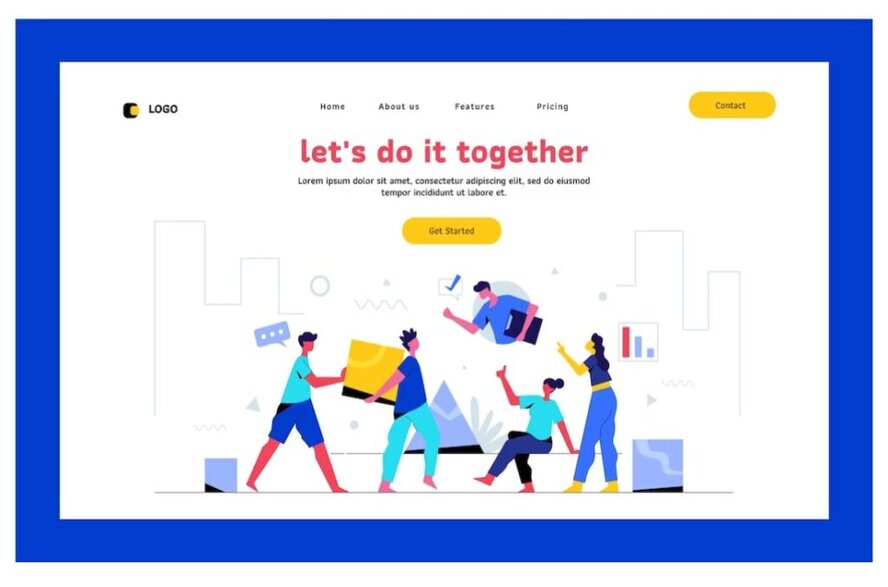
Somebody rightly said, “You never get a second chance to make a first impression.” An innovative and well-designed landing page can create a positive first impression and glue their interest. Here’s a step-by-step guide to help you make an effective and engaging event landing page:
- The primary goal of your event page may vary. It must have a section called to event registrations to encourage people to register for the event. It must also clearly highlight its call to action (CTAs), such as selling VIP tickets or gathering leads.
- It must have a clutter-free design with a clear and intuitive layout.
- It must also have easy navigation.
- It should grab people’s attention with a compelling headline that communicates the value and uniqueness of your event.
- The landing page should incorporate high-quality images, videos, or graphics that capture attention, evoke emotions, and create a positive impression of your event.
- It should provide essential event information, such as the date, time, venue, and a brief description.
- It should carry action-oriented keywords as buttons (CTAs), such as “Register Now,” “Get Tickets,” “Free Tickets,” “Free Event Tickets,” or “Join Us.”
- It should include a user-friendly registration or ticket sales page form directly on the landing page.
- It would be best if you boosted the credibility of your event by showcasing testimonials, reviews, or endorsements from previous attendees or industry influencers.
- It will help if you highlight what differentiates your landing page from similar events, such as exclusive sessions, networking opportunities, or special perks. It should use bullet points or concise paragraphs to convey this information.
- You should continuously check and optimize your landing page to improve its effectiveness. You can also experiment with different headlines, visuals, CTAs, and layouts. You must use analytics tools to track performance metrics like conversion, bounce, and engagement.
- You should also ensure that your landing page is user-friendly for mobile devices. This eliminates the risk of ticket buyers getting distracted during checkout.
4. Develop an Event Brand Identity
A well-defined brand identity helps differentiate your event from others, creates a memorable impression, and establishes credibility. As per a research paper co-authored and published by a Columbia Business School Professor, an event’s overall brand experience goes a long way in assessing the success of one’s event promotion and marketing efforts.
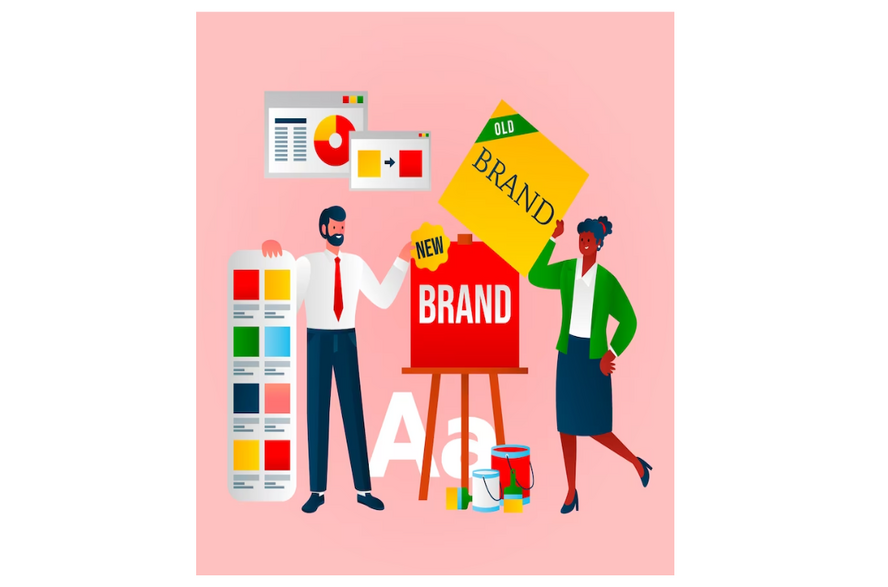
According to the researchers, brand experience is not just about emotions- it involves sensory stimulation, thinking, and interactive experiences- all of which are associated with an event’s brand identity. What does the event invoke in you every time you think about it? Does it make you feel good, or does it make you want to avoid it? All these aspects of an event’s brand identity influence an attendee’s event experience. That is why it is vital to merge all marketing and promotional efforts to build a strong brand identity for your event. To develop an event brand identity, clearly define the characteristics that represent your event and its purpose, as it will improve your event’s unaided recall. You must also develop a concise and memorable tagline or slogan that expresses the essence of your event.
You can create a visually alluring and unique logo representing your event’s identity. You can select a color palette that reflects your event’s brand personality. Use your chosen colors consistently across all promotional materials and touchpoints.
You must choose fonts that align with your event’s brand. The fonts should be readable and legible. You must create a section or page that outlines your event’s brand guidelines.
You can use visually pleasing elements such as banners, posters, social media graphics, and email templates and maintain a consistent tone across all event communications to reinforce the brand identity.
You can apply your event’s brand identity consistently across all promotional channels, including your website, social media profiles, email newsletters, advertisements, targeted ads on, Facebook ads, Instagram ads, and event collateral.
5. Encourage Early Bird Registration
Promote early registration as one of the best creative ways to advertise your events. It will encourage people to register for your event as quickly as possible.
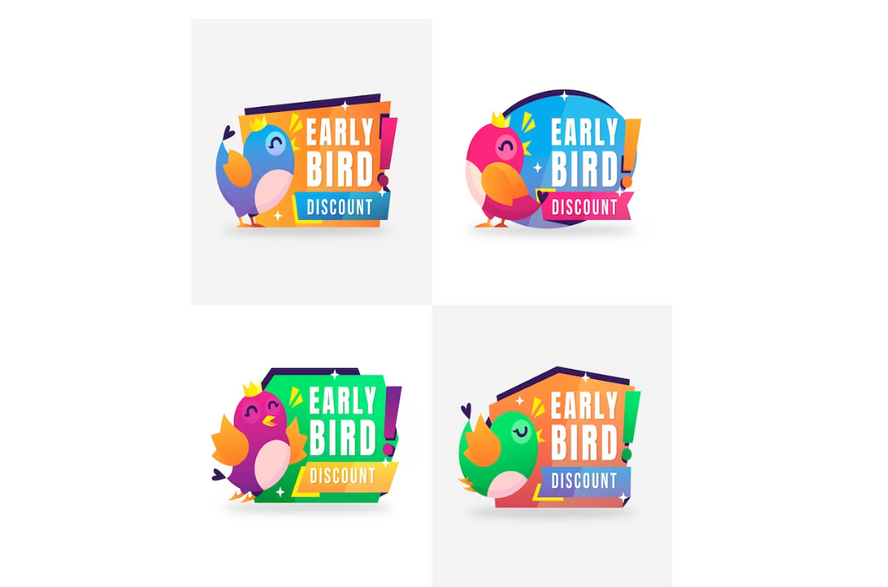
Highlight benefits that early bird registrants will receive, such as discounted tickets, VIP privileges, priority seating, or additional perks. Incorporate a countdown timer on your event website or registration page to visually display the time remaining for early bird registration.
Create a perception of scarcity by limiting the number of early bird tickets available.
Communicate that there are a limited number of spots at the discounted rate, encouraging attendees to secure their places early.
6. Advertise Outside Your Business
In order to ensure the triumph of your event promotion efforts, it’s essential to advertise outside your business sphere and reach a more expansive new audience. Consider the following points if you plan to incorporate some effective promotion strategies outside your business.
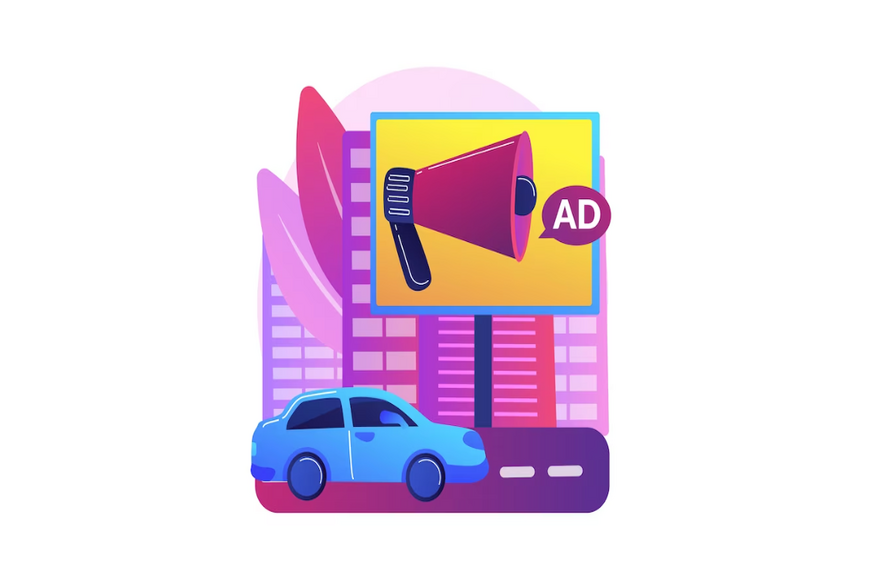
- You can write informative and valuable guest blog posts for popular websites or blogs that cater to your lookalike audience. Additionally, you can Include a bio or author box that promotes your event and links to the registration page.
- It would help if you considered event advertising through traditional marketing channels like radio, television, or newspapers.
- You should attend local networking events, trade shows, or conferences to meet potential attendees and distribute promotional materials.
- It would be best to consider outdoor advertising options such as fancy billboards, old-fashioned banners, or signage in high-traffic areas relevant to your target audience.
- Think about collaborating with experts or influential individuals to promote your event through sponsored content, guest blog posts, social media event promotion links, or live-streaming.
- You must submit your event to popular event listing websites and online directories relevant to your industry or local area. These platforms attract individuals actively searching for events to attend, helping you reach a targeted audience outside your immediate network.
7. Utilize Content Marketing
Content Marketing helps create the required buzz about your event that can generate interest among the audiences about the same. It involves creating compelling and valuable content around your event that will resonate with your target audience.
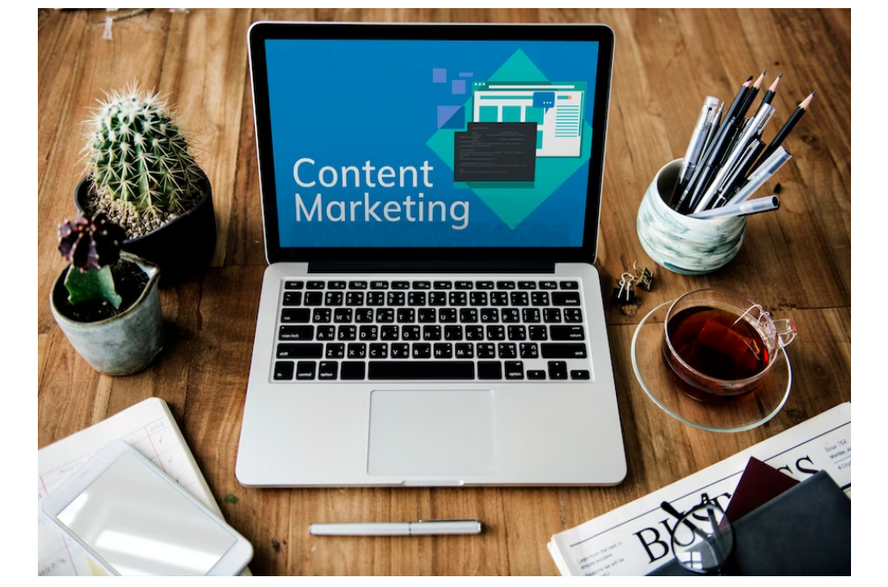
As a part of your content marketing efforts, create valuable and shareable content related to your event. It could be blog posts, articles, reels, videos, webinars, or infographics that provide insights, tips, or behind-the-scenes information.
You can share this information on your social media channels, website, and other relevant platforms to establish your event as a thought leader in your industry.
You must also optimize your information for search engines to improve its visibility and reach. Use relevant keywords in your blog posts, video content, and meta tags. You must focus on providing high-quality and relevant content that aligns with your audience’s search intent.
You can also share case studies or success stories from previous events or attendees. Highlight the positive experiences, outcomes, and benefits of participating in your event. These stories provide social proof and encourage potential attendees to register.
8. Leverage Social Media Effectively
Social media platforms are powerful tools for event promotion. As per a research paper published in the Journal of Hospitality and Tourism Technology in February 2019, people who like attending events or festivals do so after using social media. These findings showcase that social media is, in fact, an excellent way for most businesses to promote their events, as it has a great potential to act as an effective promotional tool for events and conferences.
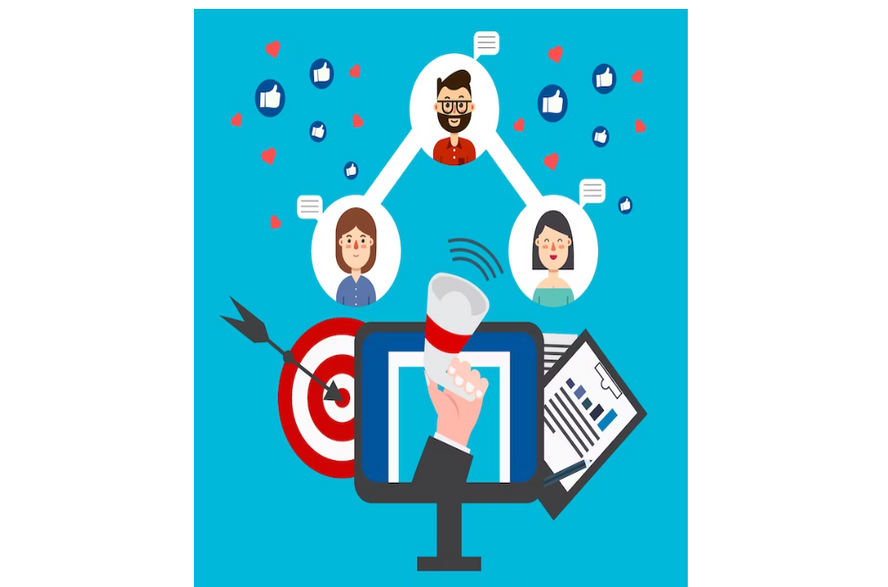
Follow the given below strategies to leverage social media effectively for event promotion and guarantee success:
You can use any channel to post content marketing assets for promoting your event. Use a combination of images, text, videos, and live updates to keep your audience informed and excited. Encourage attendees to share your event on their social media profiles.
Follow the given below strategies to leverage social media effectively for event promotion and guarantee success:
- Pinpoint the platforms where your target audience is most active. Focus your marketing efforts on those platforms to maximize your reach and engagement. Popular platforms for event promotion include Facebook, Instagram, Twitter, LinkedIn, and YouTube.
- Use social media filters to advertise your event. Create a Facebook group or Facebook page for your event. You can also post polls on your Instagram stories.
- Optimize your social media profiles to reflect your event’s branding. Use high-quality images, a captivating bio, and a clear call to action to drive visitors to your event registration page or website.
- Use different types of content, including informative posts, behind-the-scenes footage, speaker highlights, testimonials, polls, and interactive elements, to keep your audience engaged. You can read more about How to Build B2B Social Media Strategies: 13 Effective Ways.
- Customizing hashtags helps gain the visibility of your social media posts and makes them discoverable by users interested in similar content. Create a branded hashtag specifically for your event to encourage user-generated content.
- Use eye-catching images, videos, infographics, and animations to grab attention and communicate essential information about your event.
- Collaborate on content creation, co-host live sessions, or run joint promotions.
- It will help you to reach a wider crowd and target specific demographics. Use compelling visuals, concise ad copy, and strong calls to action to drive engagement and conversions.
- Monitor your social media metrics, such as engagement rates, reach, click-through rates, and conversions. Use analytics tools provided by each platform to understand what’s working and make adjustments to your strategy accordingly.
- Develop dedicated social media campaigns leading up to your event. Use teaser content, countdowns, exclusive offers, and behind-the-scenes glimpses to generate excitement and anticipation. Create a sense of FOMO (Fear of Missing Out) to encourage registrations. For more insights on B2B social media content ideas, read 27 B2B Social Media Content Ideas To Drive Success All Year Long.
9. Email Marketing
Emails are one of the most reliable means of event marketing and electronic commerce these days. According to a December 2021 research study published in the Journal of Economics and Technology Research, email marketing is seen as a new way to reach out to a large customer base and generate profits despite its cons.
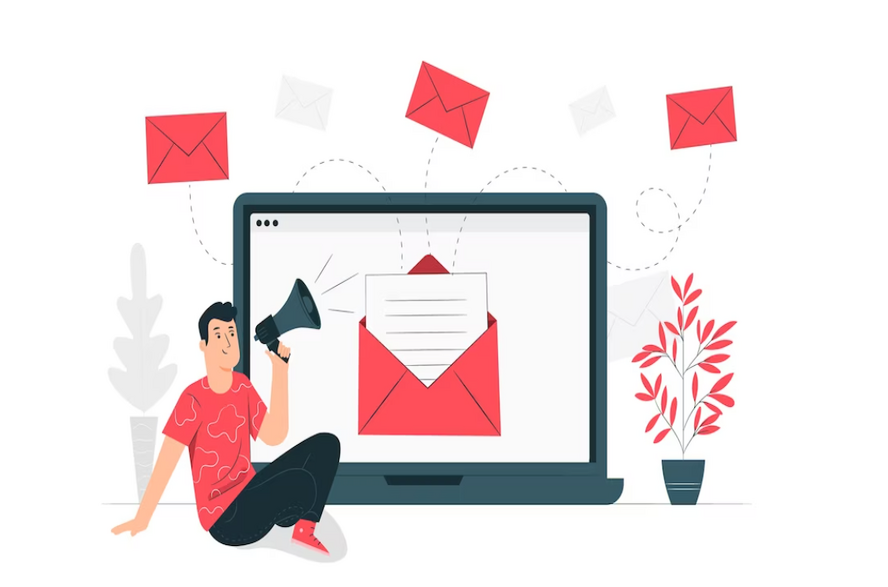
While this study isn’t about email marketing’s impact on event promotions, one can’t deny that it is an effective tool that could be used to promote events or conferences. The research states that for email marketing to work for your brand, it is essential to understand customer preferences. The same holds when one is using email marketing for event promotions.
Before using the marketing tool to promote an event, it is essential to ask yourself whether email marketing will meet your customer needs. If the answer is yes, you will know that email marketing could be useful in promoting your event.
For using email marketing as an influential event promotion tool:
- Build an email list of interested individuals or previous event attendees.
- Send regular newsletters and updates to keep them informed about your event.
- Personalize the emails, include compelling visuals, and provide clear calls to action.
- Offer exclusive discounts or early-bird ticket sales to incentivize registration.
Ensure your emails are mobile-friendly and responsive. A significant portion of email opens occur on mobile devices. So, your content and design must be optimized for a seamless mobile experience.
Lastly, use personalization to address recipients by name and customize the content based on their preferences or past event interactions. Personalization adds a human touch and increases engagement.
10. Run a Social Media Poll
Running a social media contest is an excellent way to promote your event. You can select a social media platform that aligns with your target audiences, such as Instagram, Twitter, Whatsapp, LinkedIn and Facebook. These platforms have built-in polling features that make creating and sharing polls easy.
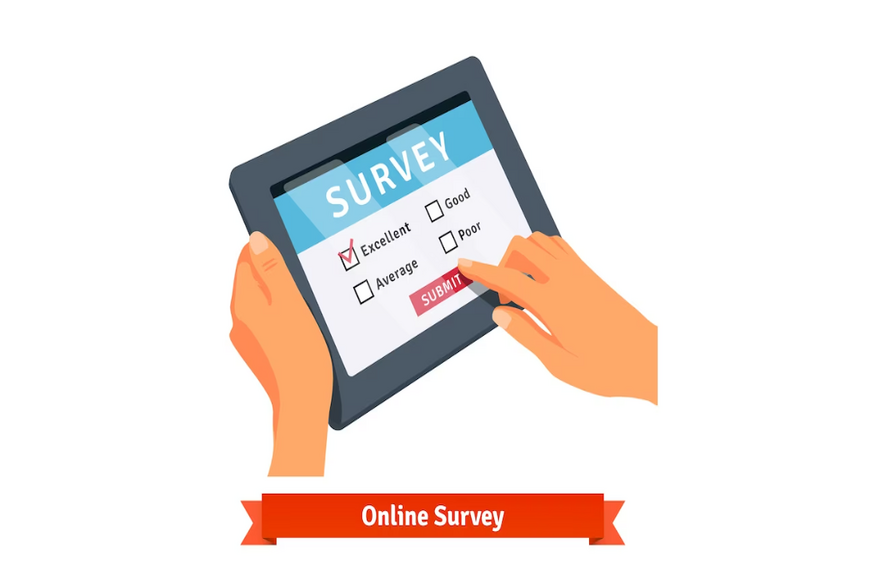
You can use the polling feature on your chosen social media platform to create your poll. Add the question and provide options for respondents to choose from. You could consider using images or emojis to make the poll visually appealing and increase engagement.
Share the social media challenges across your channels, inviting your followers to participate. Craft compelling captions or tweets that highlight the value of the poll and encourage participation. Use relevant hashtags, as they will help increase the reach of your poll to a broader audience.
Engage with respondents by responding to their comments, thanking them for participation, and encouraging further discussion. These gestures help create a sense of belongingness and keep the poll visible in users’ feeds.
Once the poll has ended, share the results with your audience. This can be done through a follow-up post or a story update.
11. Generate Event Hashtags
Social media hashtags are essential from the point of view of increasing content visibility. They can also be used to build and interact with specific communities, follow up on campaigns, and build a brand’s online presence from scratch. When you use social media hashtags strategically, they can enhance the effectiveness of social media marketing efforts.
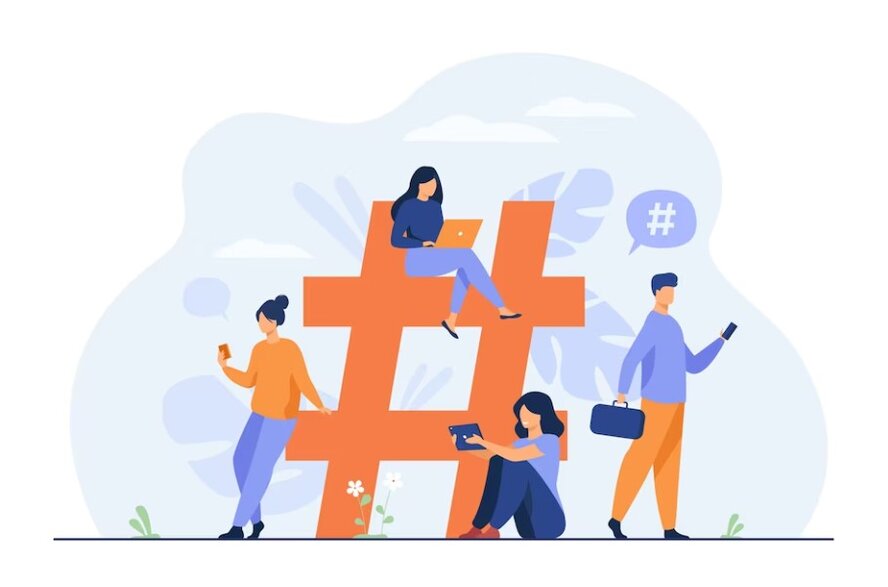
However, you must create something unique, memorable, and relevant to them when generating event hashtags, as that will likely increase event visibility and garner maximum attention and publicity. You can choose a hashtag that is concise and easy to remember. Incorporate your event’s theme, name, or critical elements into the hashtag. You must ensure that other events are not using your hashtag. Make sure your hashtag is unambiguous. You must double-check the spelling and readability of your hashtag to avoid any confusion or unintended meanings.
Promote your event hashtag through various channels, including your website, social media profiles, email communications, and event materials. Before finalizing your event hashtag, test it out by searching for it on social media platforms to ensure it’s not already in use or associated with unrelated content.
You should research trending hashtags within your industry or community to see if incorporating them into your event hashtag could increase visibility.
You can also try out Instagram takeovers. For the uninitiated, when you allow a guest to take control of your profile for Instagram event promotion for a fixed duration and post relevant content, it’s called Instagram takeover.
12. Collaborate with Influencers or Industry Experts
Influencer marketing is becoming increasingly popular as an effective marketing tool. As per a 2018 research paper published at the Scientific Conference of Business Economics Management and Marketing, brands can use influencers on social media as an efficient product or brand marketing strategy. Event organizers and marketers can take advantage of these strategies and employ the same while planning events as well.
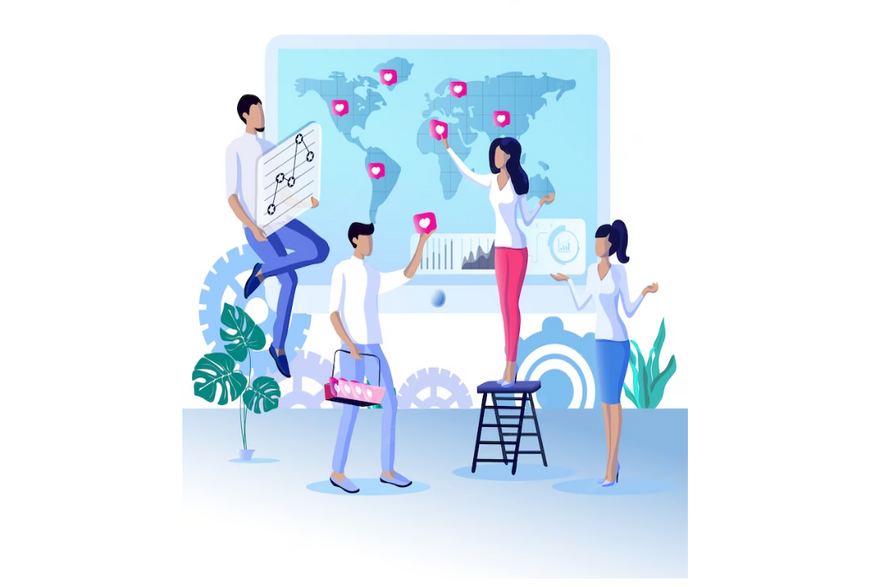
While exploring this option, event organizers and marketers can research and identify influencer marketing or industry experts with a strong presence and a following that aligns with your target audience. They can look for individuals with expertise or influence concerning their event’s specific niche or topic.
They can collaborate with influencers or industry experts with a strong following in their target audience. They can promote the event among their followers through blog posts, social media mentions, or interviews. They can choose influencers whose values align with their event to ensure authenticity.
Event organizers and marketers can encourage influencers to share the event’s live updates, videos, posts, and photos on social media platforms. This creates real-time buzz and extends the event’s reach to its followers. They can provide them with event hashtags and handles for tagging and engagement.
Event organizers must arrange interviews or panel discussions featuring influencers or experts as speakers at their event. For instance, if they host a social media takeover with an influencer, they can reach the latter’s whole audience. It allows them to share their knowledge, which adds credibility and value to their event. They can promote these sessions to generate interest and attract attendees.
13. Referral Program
Encourage existing attendees or contacts to refer their friends, colleagues, or network to your event. You could offer incentives such as discounts, promo codes, free stuff, sharing VIP experiences, or exclusive content for successful referrals. It can significantly expand your reach and attract new attendees.
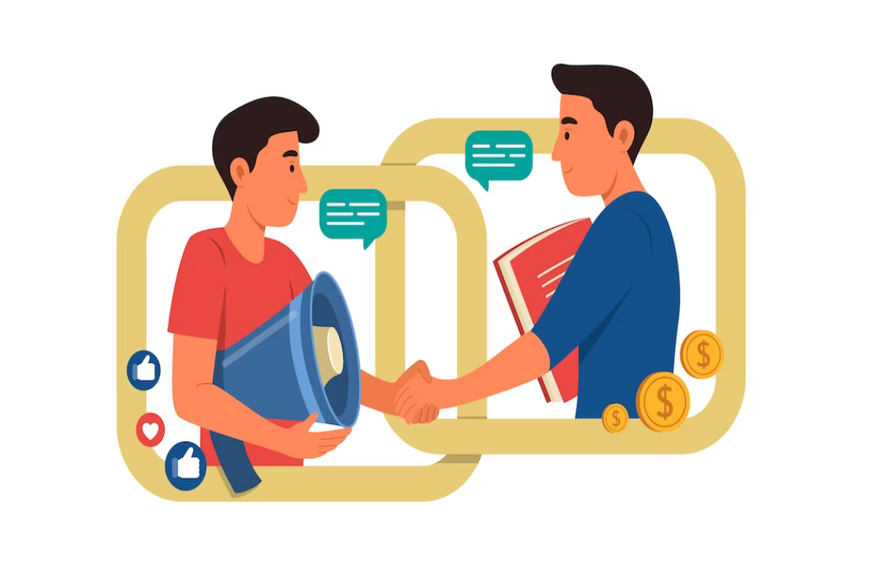
You must equip participants with the necessary tools and resources to promote your event effectively. It could include pre-written social media posts, email templates, banners, or shareable graphics. You could make it simple for them to spread the word about your event.
Offer attractive incentives to motivate attendees to refer others to your event. These incentives could include discounted tickets, limited free admission, exclusive perks, access to premium content or sessions, or special recognition at the event. The rewards should be compelling enough to encourage referrals.
14. Promote your Event Offline
While it can be alluring to depend entirely on digital channels for your event promotion, specific offline methods of promoting your event, like using flyers, brochures, posters, banners, billboards, and television, can still be quite effective today. After all, it is crucial to reach a local audience who still watch television, spend time on the road looking at billboards, or browsing print publications whenever they are outside. Offline promotional strategies are a great way to create a buzz within your community. Some of the ways in which you, as an event organizer, can capitalize on offline event promotional tools is by distributing printed materials, such as flyers, brochures, etc., that highlight your event’s key details.
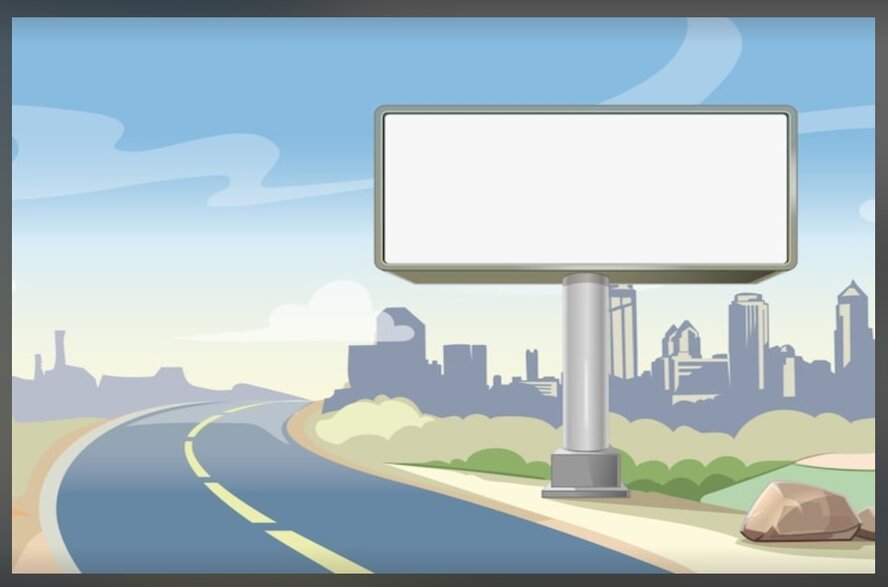
- You can Include online ads in local newspapers or relevant magazines to target a wider audience. Include event visuals, key details, and a clear call-to-action for registration.
- You may advertise on local radio and television channels and prepare catchy and informative scripts that captivate listeners or viewers.
- You can also utilize outdoor signage to promote your event. You can rent billboards, display banners, or use digital screens in high-traffic areas to capture the attention of passersby.
- Recruit enthusiastic individuals as event ambassadors who can promote your event within their social circles and networks. Provide them with promotional materials, talking points, and incentives for every successful referral or registration they bring in. Ambassadors can be volunteers, big sponsors, or influential community members.
15. Register Your Event on Popular Event Listing Platforms
Event listing platforms and online calendars attract people actively searching for events to attend. You can provide a catchy event description, highlight critical features, and include a link to your event website for more information.
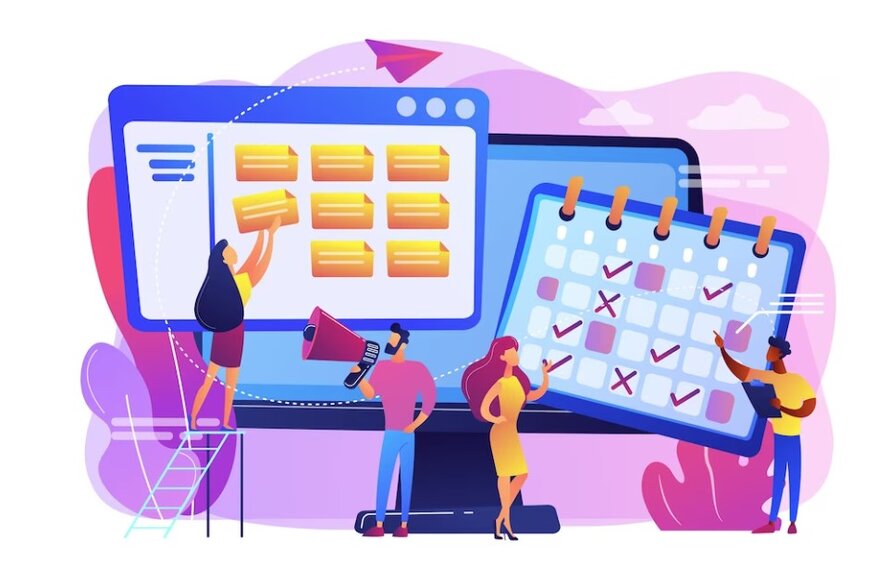
Some well-known platforms include Eventbrite, Meetup, Facebook Events, Eventful, and local community websites or directories. Sign up or create an account on the event listing platforms that you have chosen. Give the necessary information, such as your name, phone number, email address, and event organizer details.
Schedule ticketing options on the event listing platforms. Specify ticket prices, availability, early bird discounts, group rates, or any other ticketing details. Ensure that the ticketing process is seamless for attendees.
16. Engage With Your Viewers
Engaging with your audience is an essential aspect of promoting your event. You can build relationships, generate excitement, and encourage attendance by actively interacting with your audience. Some practical ways to engage with your audience in promoting your event include participating in relevant industry conferences, trade shows, or community gatherings. Network with potential attendees and share contact information for your event.
- As an event organizer, you can host informal meetups or networking events before your main event. It allows potential attendees to connect, ask questions, and understand what to expect. It creates a sense of community and excitement.
- You can monitor your event’s social media pages and promptly respond to comments, questions, and messages. You can ask the audience to share their excitement, opinions, or creative ideas about the event. You can also encourage your audience to participate in polls, quizzes, or interactive videos.
- Email newsletters with event updates, exclusive offers, or behind-the-scenes content can also enhance your event promotion efforts.
- Use live video streaming platforms like Facebook Live, Instagram Live, or YouTube. You can also provide behind-the-scenes glimpses of your event preparations to engage with your audiences.
- After your event, ask for input or surveys to gather insights and suggestions for improvement.
- Encourage attendees or potential attendees to share their experiences, photos, or testimonials about your event. Repost and share this user-generated content, giving credit to the contributors. It showcases authentic experiences and encourages others to participate.
17. Monitor Website Traffic
Monitoring your website traffic is an effective way of optimizing your event promotion efforts. You can assess whether your event promotion strategies are working effectively by tracking your website traffic closely. You must regularly check your event listing platforms for new inquiries, updates, or comments. You must respond promptly to inquiries and engage with potential attendees to build interest and answer questions.
Track the performance of your event listing on each platform. Analyze metrics like the number of views, ticket sales or registrations, and the source of attendees. These metrics can help you assess the effectiveness of each platform and enhance your event promotion strategy.
Analyze the data to identify what is working and what needs improvement. Make necessary adjustments to your strategy to maximize results.
Monitoring website traffic is a relatively new phenomenon in the digital world and requires meticulous research and follow-up. Analyzing website traffic data from time to time can provide insights into your audience’s demographics, interests, and behavior, which can help you understand your audience better and enhance audience participation.
Since website traffic analyzes real-time data, you could also use it to correct any possible fall in traffic by adjusting website traffic accordingly. In short, monitoring website traffic can help you make data-driven decisions and improve your marketing strategies, which will all translate to increasing the number of attendees at your event.
Key Takeaway:
This article provides a comprehensive guide to creating valuable and engaging content to attract and educate your audience, showcasing the value and benefits of promoting your event. You should use social media platforms effectively by creating exciting posts, running polls, collaborating with influencers, and leveraging hashtags to boost event promotion.
At the same time, as an event organizer, you must utilize targeted email campaigns to reach your audience directly, providing them with event updates, exclusive offers, and personalized messages. Event promotion is an ongoing process, and adjusting your strategies based on audience feedback and market trends is crucial for achieving the best possible outcomes.
Meanwhile, if you’re interested in the world of events and related information, such as this blog, visit Eventible, a review platform for multiple events. Watch out for this space for some valuable attendee feedback, event-related articles, insights, news, and more!

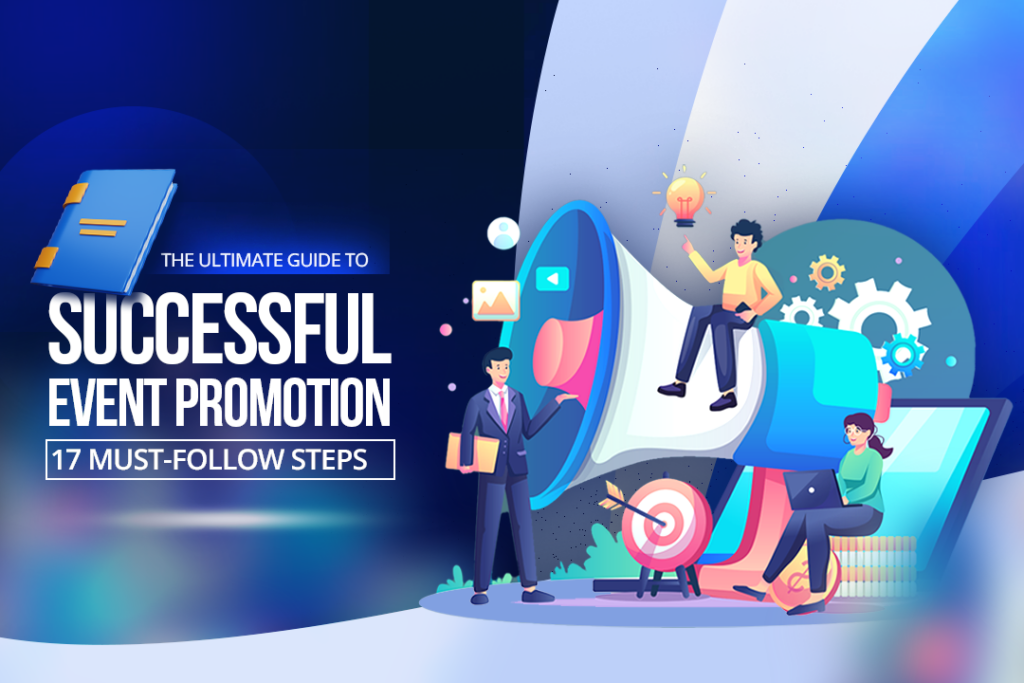
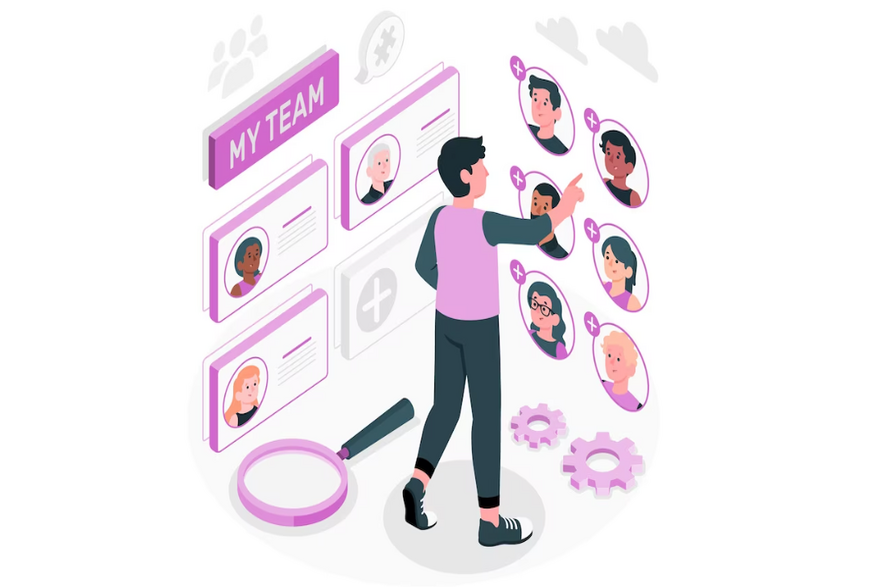
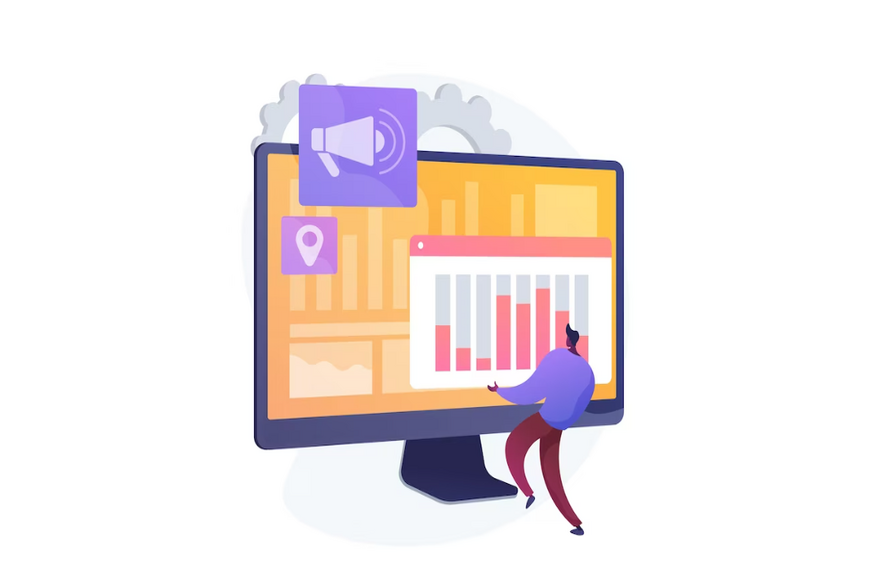



Comments are closed.